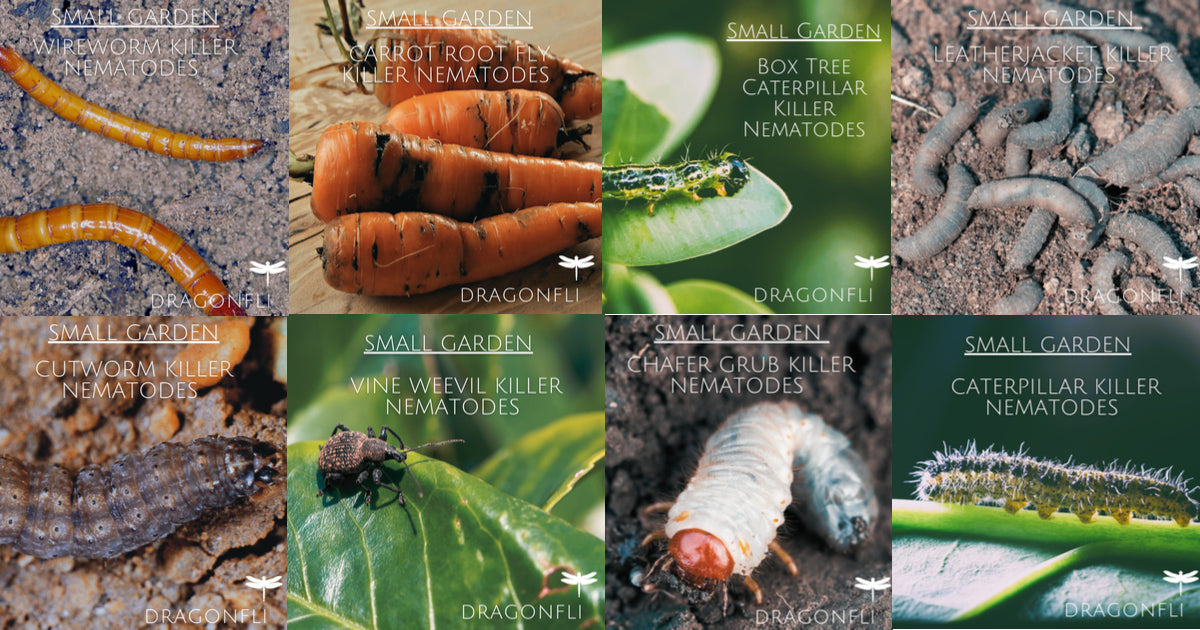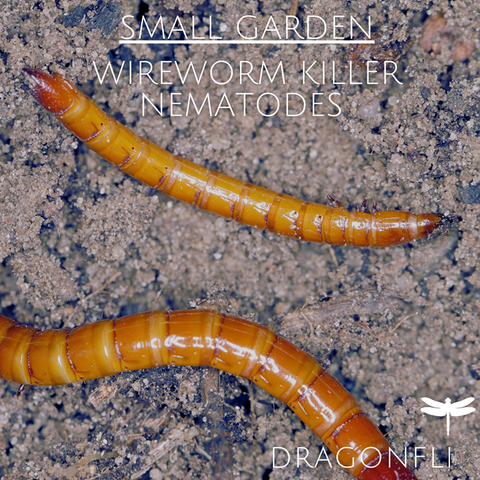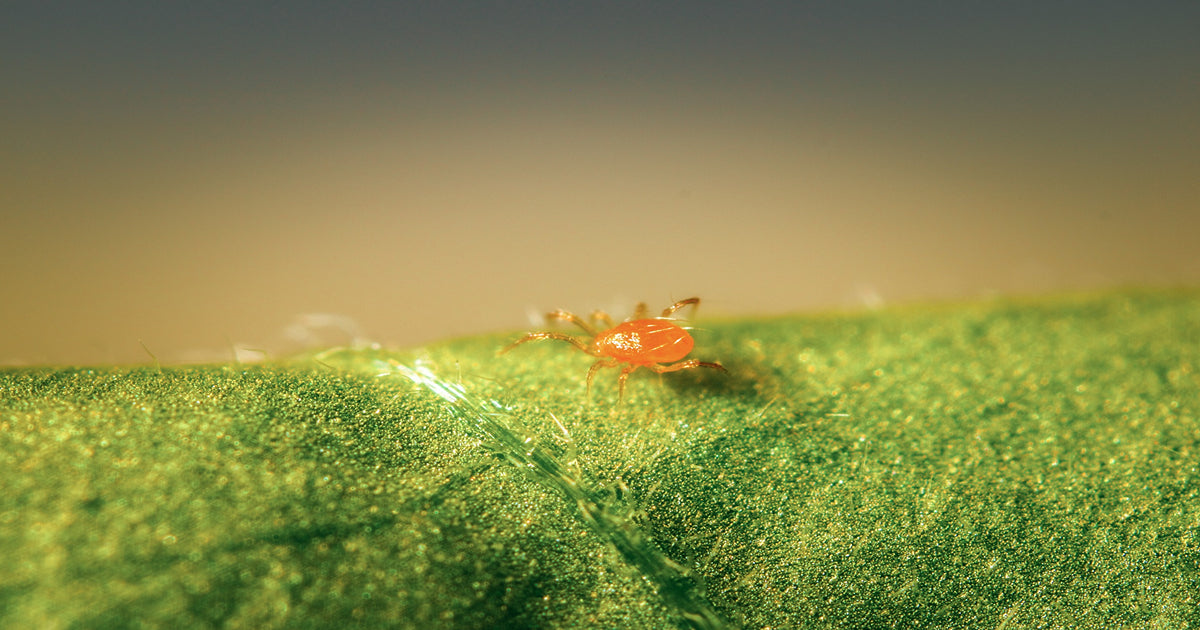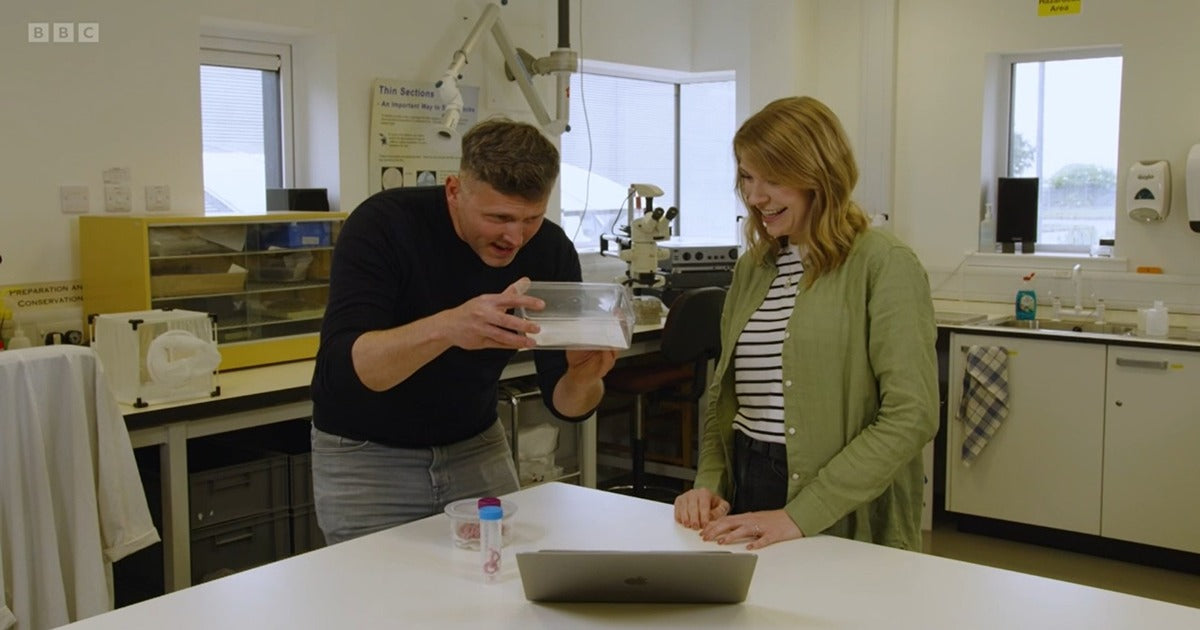
New Small Garden Range: Nematodes Highly Effective At Treating Insect Pests In Smaller Gardens
Entomopathogenic nematodes provide a safe, natural and effective solution for an increasing number of pests found in small gardens. An insect pest attack in a small garden can appear more damaging than an attack in a larger garden as the damage sustained to prize specimen plants is easier to identify in the smaller, more contained spaces.


Damage from pests such as Vine Weevil is more visible in smaller gardens, but also easier to treat with nematodes.
The fact that such damage is easier to spot, and has impacted a smaller number of plants, however, is advantageous when attempting to treat the destructive pests with nematodes. Targeted applications of nematodes to smaller areas, and smaller numbers of plants, can be more effective and is this blog we will detail some examples of how these tiny microscopic eelworms can be easily applied to treat a variety of insect pests found in small gardens.

Our entomopathogenic nematodes are microscopic, sized between 0.3 - 1mm, and harmless to humans, pets & wildlife.
Small Garden Vine Weevil Killer
Vine Weevils are very destructive pests that attack a wide variety of plants. Vine Weevil larvae eat and damage plant roots, which in some cases causes plant death. Applying our new Small Garden Vine Weevil Killer Nematodes to your pots between March and Juneand then again between August and October will ensure that the damaging Vine Weevil larvae are killed.
Nematodes are very effective when applied to the compost, as they are watered into pots, as they can travel through the substrate in a relatively confined area more efficiently than in a larger open flower border. Once successfully applied, the nematodes will quickly locate and kill the Vine Weevil larvae. This provides excellent results and ensures your plants are protected naturally from a most damaging pest.
Nematodes are very effective at travelling through compost in confined areas, such as in pots or raised beds.
Small Garden Box Tree Caterpillar Killer
Box Tree Caterpillars generally tend to be well concealed within Box Tree plant foliage, and are capable of causing severe damage to Box plants which in many incidences can lead to the death of Box plants. Box plans will turn completely brown in colour and die if they are left untreated from such infestations.
Box caterpillars can completely destroy Buxus plants if left untreated.
Once you start to catch Box Tree Moths in your Box Tree Moth Pheromone Traps you can expect to spot the caterpillars a few weeks later. Ensure to keep checking your plants and as soon as you identify the Box Tree Caterpillars apply Small Garden Box Tree Killer nematodes directly onto the caterpillars. Applying lots of nematodes directly onto the caterpillars will increase the level of control, which is easier to accomplish on smaller or single plants.
When you catch Box Tree Moths in Box Tree Moth Pheromone Traps prepare to expect caterpillars in your hedges a few weeks later.
You may also wish to consider placing Box Tree Moth Egg Killer Sachets in each Box plant. These sachets release tiny parasitic wasps that kill the Box Tree Moth eggs, preventing them from developing into caterpillars.
Our Box Tree Moth Egg Killer Sachets can also be placed within your plants to naturally kill Box Tree Moth eggs.
Small Garden Leatherjacket Killer & Small Garden Chafer Grub Killer


A small lawn can become severely damaged, or even destroyed, by turf pests such as Chafer Grubs or Leatherjackets. Damage can also be exacerbated when birds or animals detect the presence of the grubs as they will very quickly rip up the lawn in search of them.

Lawns can be destroyed by Badgers or Birds seeking to dig up the turf pests present below.
Thankfully small, infested lawns are easy to treat with nematode applications. A smaller surface area makes it an easier task to pre-wet lawns in preparation for the application of either Chafer Grub Killer or Leatherjacket Killer Nematodes. These nematodes can then be watered into the lawn to seek out and kill the relevant turf pests.
Remember to ensure that plenty of water is applied with the nematodes to enable them to travel through the soil in search of the grubs. We also have dedicated soil penetrant carrier product that can be applied with the nematodes to further aid their movement in the soil in the form of Nemaflo.
Nemaflo can be used to speed up and improve the success of nematode applications.
Small Garden Carrot Root Fly Killer, Caterpillar Killer & Wireworm Killer
Three more common insect pests that can be controlled effectively in small gardens include Carrot Root Flies, Cabbage White Caterpillars & Wireworms.
These pests are all often identified in raised beds or vegetable patches. We have therefore created a dedicated 'Small Garden Vegetable Bed Care' page where you can find all of our new nematode products to protect your home grown crops from these specific pests.
If you’d like to read more on all of our new small garden range products and check out the full Small Garden range you can find the home page here.
Comments (5 Responses)
Katy Escott
If our neighbours garden hasn’t treated their garden with a Leatherjacket Nematodes will the be a problem to our treated lawn?
seo for pest control companies
really amazing blog
Julian Ives
Hi Dean, thanks for getting in touch.
The best way to avoid Root Rot is to ensure that the roots of your plants are strong and healthy. We would recommend applying our Roots Boost Granules when planting or transplanting and re-potting your plants.
Roots Boost contains Mycorrhizal Fungi, a natural planting aid with added microbes and biostimulants. This will help your plants to develop early root establishment, increase root growth and plant uptake of water and nutrients, all of which will then help your plants to fend of diseases such as Root Rot.
You can find our Roots Boost here:
https://www.dragonfli.co.uk/collections/plant-health-2/products/roots-boost-mycorrhiza
Hope this helps but if you need any further advice please don’t hesitate to get in touch again.
Kind regards, Julian Ives [Director, Dragonfli]
Dean Riley
What’s good for Root Rot, how & what to do to avoid?
Thank You…


















24 April, 2024
Julian Ives
Hi Katy, thanks for getting in touch.
That’s a great question and one that is quite tricky to answer with absolute certainty.
Adult Crane Flies that develop from the Leatherjacket grubs present in your neighbour’s garden are likely to lay their eggs in the same areas but if the infestation is large scale there is a possibility that some of the flies may move over to your garden and lay their eggs there.
I would suggest to advise your neighbour to use our Leatherjacket Killer Nematodes too!
Alternatively, make sure to keep an eye on your lawn for any signs of infestation or apply our nematodes as a preventative measure to ensure any unidentified grubs are not able to flourish.
I hope this helps but if you need any further advice please don’t hesitate to get in touch again and we’d be happy to advise.
Kind regards, Julian Ives [Director, Dragonfli]